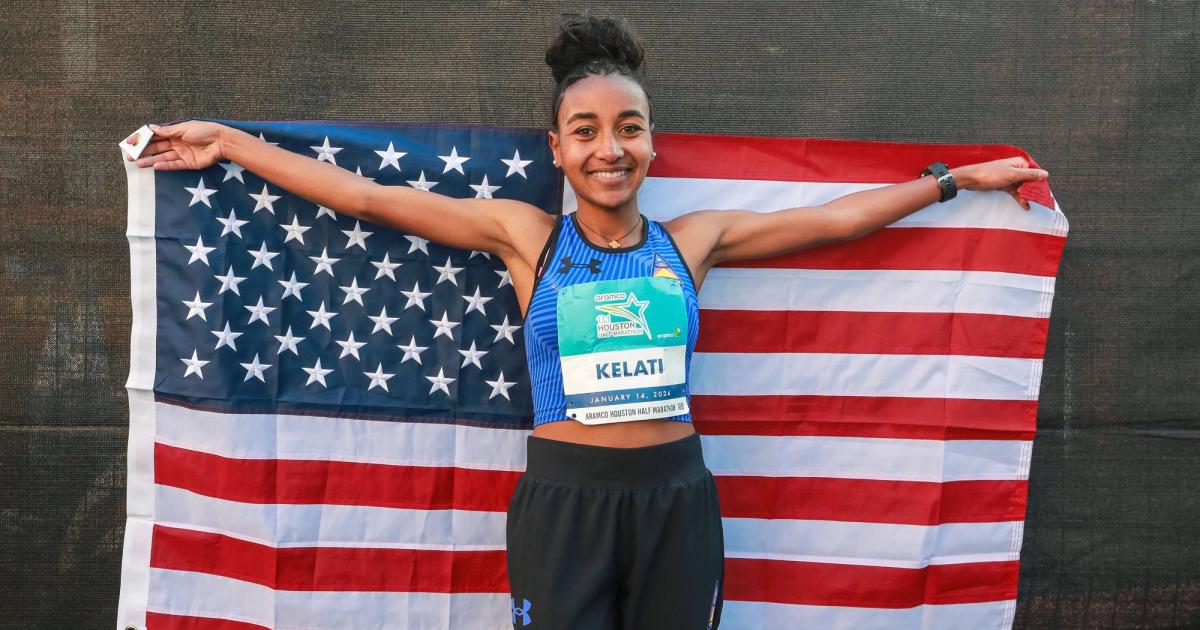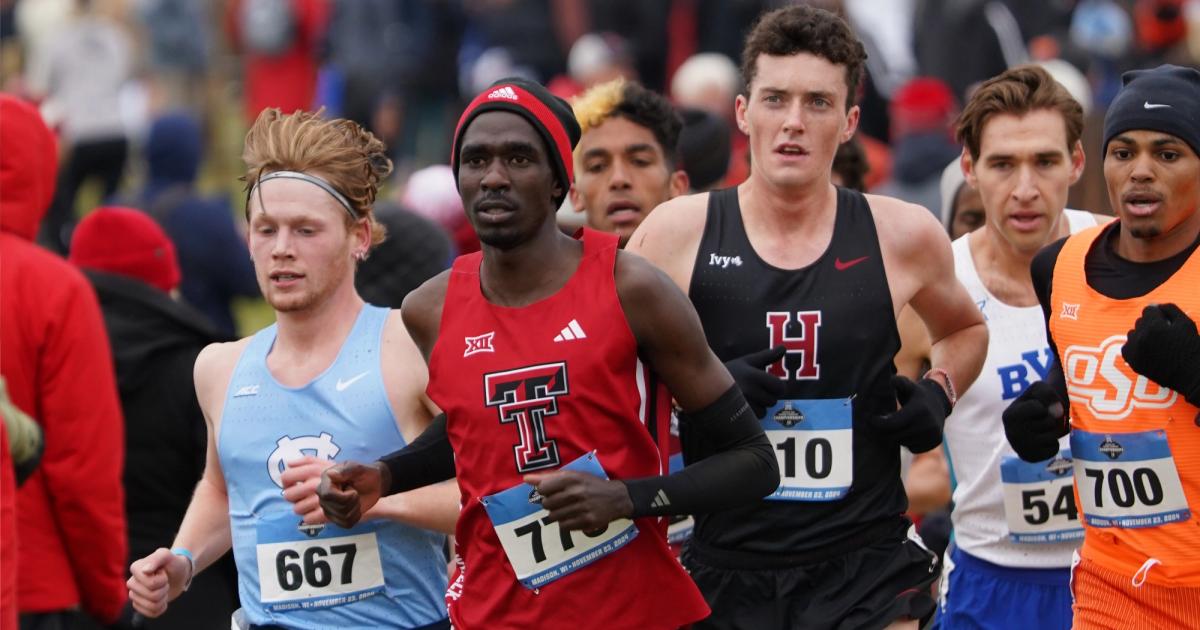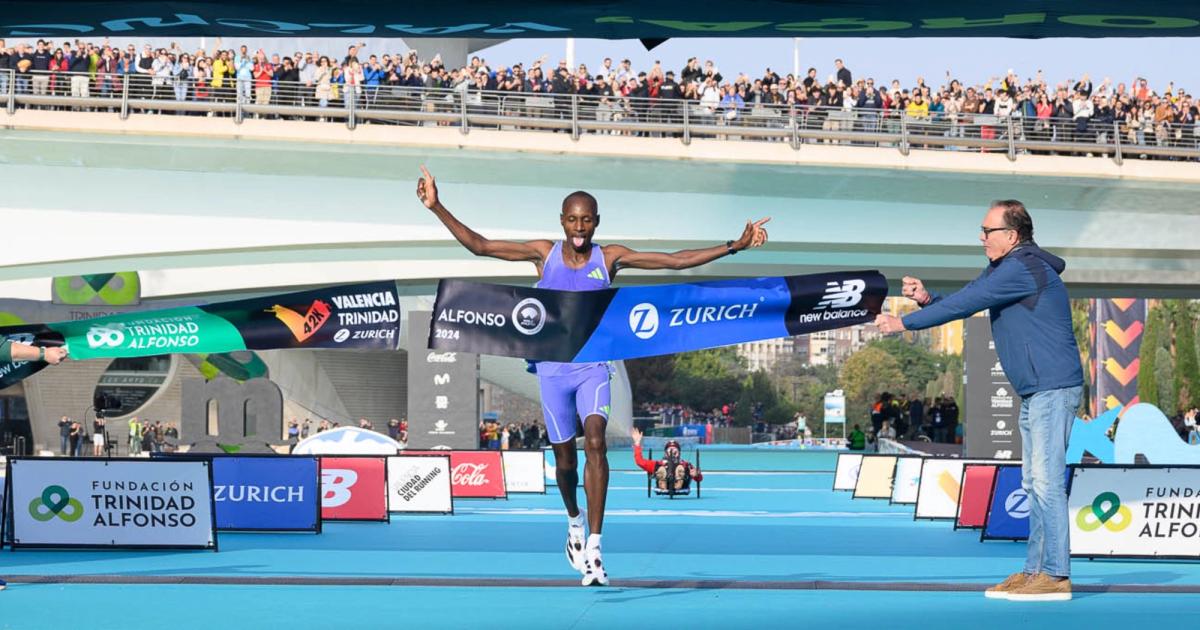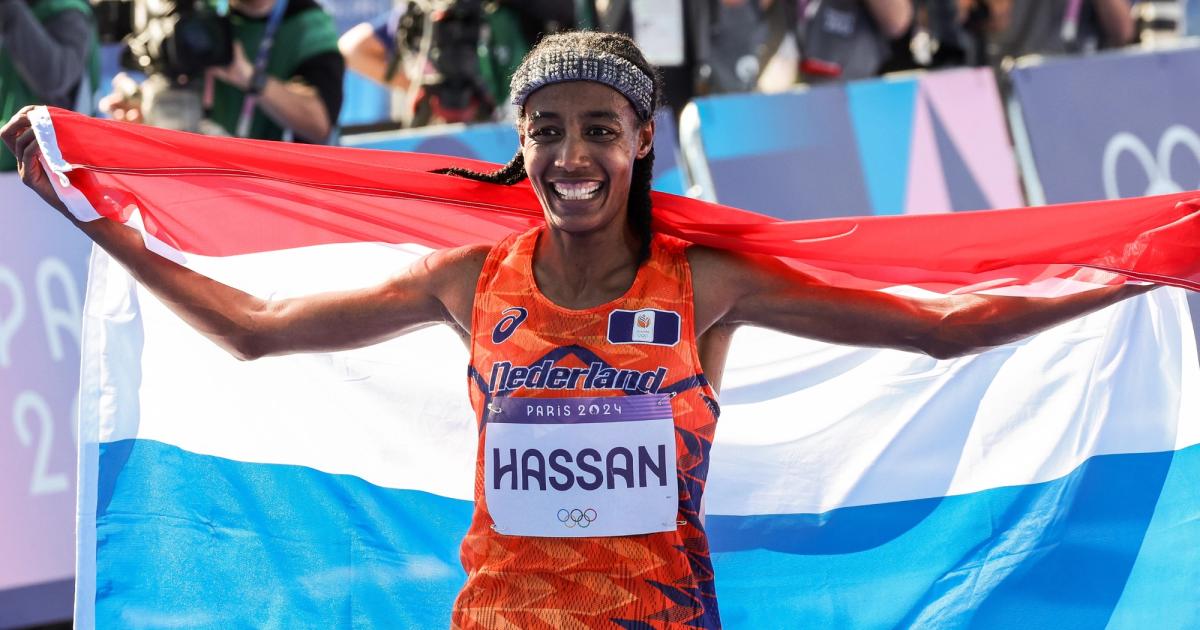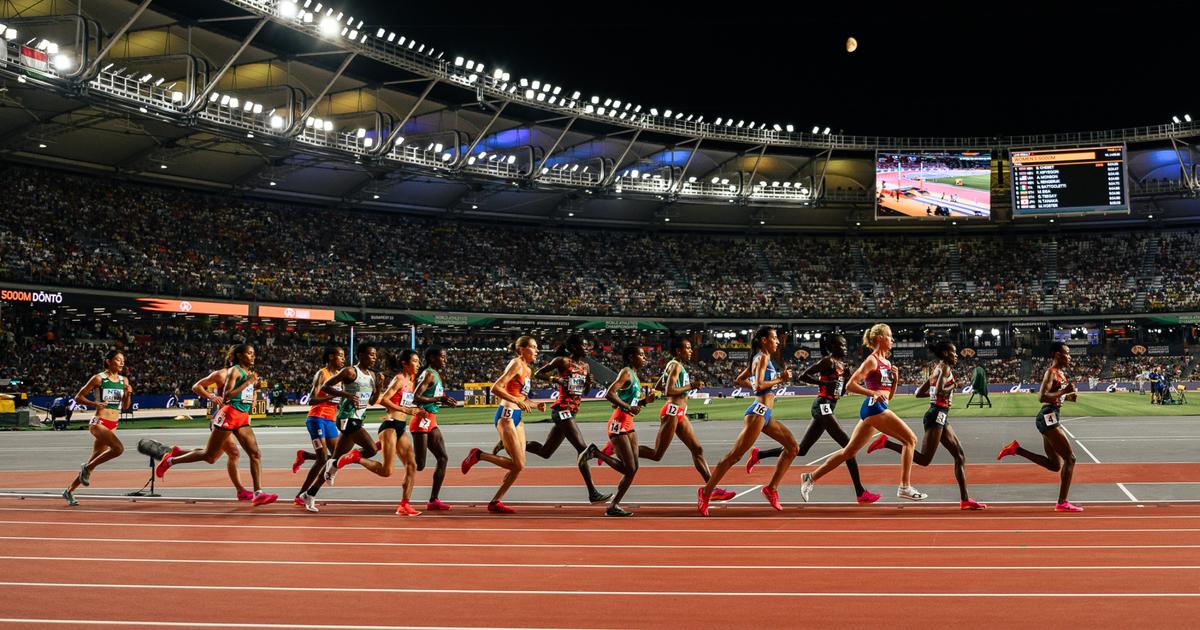By David Melly
December 4, 2024
Last Thursday wasn’t just Thanksgiving– it was the 88th edition of the Manchester Road Race, a parade of 12,000+ runners that puts the Macy’s parade to shame and has a credible argument that it’s the most competitive turkey trot in the world. The unstoppable Weini Kelati took her fourth straight title on the 4.737-mile course in 23:14, a time that’s insignificant other than it’s the second-fastest women’s mark run on the course (behind, of course, Kelati’s own course record). Andrew Colley of ZAP Endurance took the men’s title in 21:07, outkicking Eduardo Herrera and Edwin Kurgat down the homestretch. Sadly, Colley just got married to fellow runner Tristin Colley (nee van Ord) in September, so he couldn’t replicate Morgan Beadlescomb’s viral proposal moment from 2023.
Nevertheless, as we returned from our own far-less-impressive trots and tucked into our first (but not last) slice of pumpkin pie, the Lap Count brain trust (with the confidential help of a few other members of the group chat) couldn’t help but chew on a lingering question: Why are there so many historic and cool road races in the United States that have no connection to one another and no blessing by USATF?
To be clear, there is a USATF road racing championship circuit. The 2024 iteration features nine road races of varying distances, each billed as a “X KM national championship,” plus the USA XC championship and the Olympic Marathon Trials. Existing road races of varying levels of prestige submit bids, which include a promise to pony up prize money, and USATF picks the winners.
Sounds great, right? In theory, yes. Except for a couple big flaws. One – some of the most prestigious road races in the country, like Manchester, are competed over their own unique distances and thus ineligible to participate. Unlike, of course, universally beloved and respected standard distances like 25km or 6km.
Just as critically, a race has to proactively approach USATF and submit a bid. The federation, by its own rules, can’t take it upon itself to name a national championship. But a lot of the best road races in the country have no problem attracting their own pro fields and popular interest – in short, USATF needs Manchester more than Manchester needs USATF. The inevitable result is that many national championships are held in the same places every year (like the New Haven 20k or the Gate River Run) and sometimes, there isn’t even a national championship held every year, like the nonexistent 2023 U.S. marathon champs.
With little attention, prestige, or athlete interest, it’s a system that’s become something of a joke and often raises complaints about how and when events are announced and communicated. There are valid reasons for keeping the status quo – including increased prize money outside of marathons, building up a stronger domestic-only racing scene, and drawing some attention to smaller races – but if the goal is for the U.S. Road Circuit to be something fans care about and actively follow, it’s safe to say that the system is badly in need of a shakeup.
The good news is the ingredients for a revamp already exist: every year, a significant number of popular, heavily spectated, well-established non-marathon road races attract top pros and hand out big prize money. All USATF has to do is lay its collective pride aside and flex a little dictatorial muscle – there’s nothing stopping the organization from simply naming a circuit of any races it wants.
And even better, we did the legwork for them! After poring through the history books and searching the country far and wide, we’re proposing a new USATF Road Racing circuit using the following events:
- January: Houston Half Marathon, Houston, TX
- March: Shamrock Shuffle 8K, Chicago, IL
- April: Cherry Blossom 10 miler, Washington D.C. | Broad Street 10 miler, Philadelphia, PA
- May: Bay To Breakers 12k, San Francisco, CA | Bolder Boulder 10k, Boulder, CO
- July: Peachtree Road Race (10k), Atlanta, GA | Boilermaker 15k, Utica, NY
- August: Falmouth Road Race, Falmouth, MA
- November: Manchester Road Race, Manchester, CT
The result would be a seven-race series each year featuring four annual races and three races switching off even/odd years. Race distances range from 8 km to 13.1 miles and no two races are the same distance each year. Plenty of worthy races would, sadly, be left on the cutting room floor – but maybe after a decade or so they can work their way back into the mix, Sydney Marathon-style (or pitch us and/or USATF your favorites for inclusion now before it’s too late).
The big downside with this approach is that an American wouldn’t necessarily finish first overall in strong international fields – but that’s never been a problem for how we follow and cover World Marathon Majors either. Like the WMM series, a runner wouldn’t have to commit to all seven races to rack up points in the overall scoring, but the net result would be that finishing with top U.S. honors at, say, Cherry Blossom-Peach Tree-Falmouth would mean something: you’re the best American road runner this year. That feels like it’s worth caring about, alongside marathon rankings or national track titles – we just need a system that feels like it authentically determines the best in this category.
Ideally, the circuit could be both a place where road specialists like Kelati and Colley can shine alongside the likes of Grant Fisher or Conner Mantz as a distinct, but separate thing. And the clout of each individual race could attract talent from one arena to another. Hell, it already does, given the number of Chicago runners that tune up at Falmouth each year, or the 10,000m specialists who test the waters of longer distances in Houston. And history means something to fans and athletes alike. Most readers of this newsletter could correctly identify Falmouth as taking place in August, but without checking, how many could accurately place the USATF 20K champs in September? Until USATF proves it unilaterally has the clout to turn a mid-tier race into a national marquee, beggars can’t be choosers.
They say there’s no bad ideas in brainstorming. Moreover, there’s no bad ideas when the current system isn’t succeeding at what it’s trying to do. Road racing outside the 26.2 distance deserves its spotlight alongside the many other worthy competition formats; we just haven’t quite figured out how to make it happen yet. So why not try something new?

David Melly
David began contributing to CITIUS in 2018, and quickly cemented himself as an integral part of the team thanks to his quick wit, hot takes, undying love for the sport and willingness to get yelled at online.
